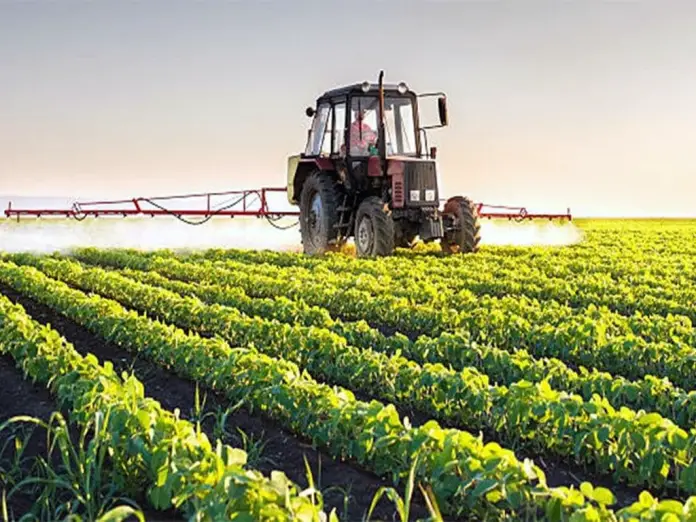By Zil-e-Huma
Agriculture is considered the lifeblood of Pakistan’s economy because it contributes about 19.2 per cent to GDP, provides livelihood to 64 percent of rural inhabitants and employs the rest of the total national labour force.
Being an agricultural country, the economy has an unbreakable connection with agriculture.
GDP in Pakistan has a high contribution while an extremely small number of monetary assets between 0.11 to 0.63 per cent of agriculture GDP in the last 20 years have been spent on research and development. The research shows that the yield gap between average and progressive farmers is about 40 per cent, which is even higher between research stations and farming communication.
Uneven food is self-sufficient in wheat, rice and sugar while irregular methodologies toward harvests dissuaded farmers to move from low worth to high regard crops. Working on farming creation is primarily determined by input heightening and region development, but all-out factor efficiency is quite significant. The research shows that imprudent utilisation of synthetic pesticides and compost has unfavourably impacted the regular assets like soil water, air, quality and well-being of food.
The significant expense of creation, low normal yield, and bad quality production are mutually giving space to imported items to capture our local markets. There are many issues which are leading Pakistan out of competition in the worldwide business sectors.
Besides it, water — being a basic contribution to agribusiness — is getting scarce, though Pakistan’s water use proficiency in the yield creation framework is quite low.
The evidence suggests that the rich fields have no growth, yet food request is consistently ascending because of expansion in populace and per capita pay.
Expanding opening among natural markets is introducing serious risk to future food security and destitution moderation strategies.
The other factor that is damaging for the agriculture sector is that the local relevant authorities do not take much interest in addressing issues and difficulties related to the farming areas. The food security of citizens seems at stake in the coming days.
Such attitude on the part of the authorities concerned is causing serious damage because it is leading to import/export imbalance besides equilibrium of the instalments. The absence of limits in creation and embracing developments at every significant value chain is also leading to the request-driven wing of the horticulture area.
Except for advancement at various hubs of significant value chains and vital foundations created through the open venture, the current circumstance is probably not going to change. There is widespread interest in horticulture cultivation-based move from sponsorship to request-driven and critical thinking research layout hatcheries to change resource farming into commercialisation and foster provincial framework to interface rustic economies with urban areas.
Expansion of the country guidance network through cultivation-based proficient planning associations could help with spreading over the data opening, further fostering the effectiveness and capability of provincial masses. This approach won’t simply diminish dependence on the old increase system. The imported improvements yet add to regard choice by additionally fostering the cultivating worth chains. Data-based improvements and interventions will provoke increased reality, ensure future food security, and abate import/trade unevenness.
The policymakers just make tall claims and announce support for the farmers but practically nothing is done. In the present times, and especially when Covid-19 hit the world and badly damaged the poor economy, it is the agriculture sector which saved the people. The labourers who do not find work are seen engaging in the agricultural fields and making money for themselves and their families. Water scarcity is a real problem for farmers. The irrigation system set up by invaders many years ago in the region is still effective if the relevant authorities keep an eye on it and ensure transparency in the water supply to the fields.
The farmers have been seen complaining about the drainage system besides protesting about the skyrocketing prices of pesticides. They work hard to feed the nation but in return what they get is not what they deserve.
The agricultural land is now being saved which is another big problem. The housing societies are engulfing the fertile land with every passing day. The absence of an effective policy and enforcement of laws has caused serious damage to the lifeblood of the country’s economy.
The writer is a student at Shaheed Zulfiqar Ali Bhutto Institute of Science and Technology (SZABIST)







